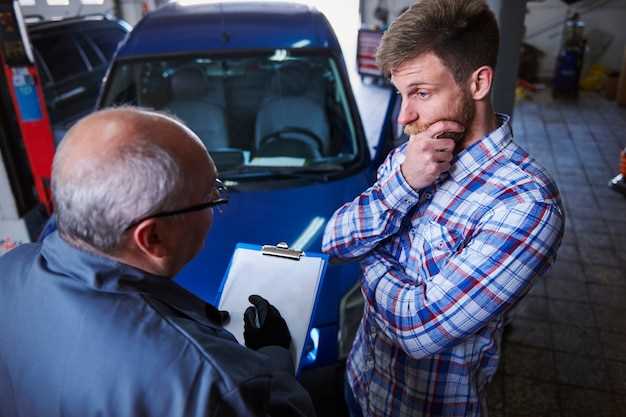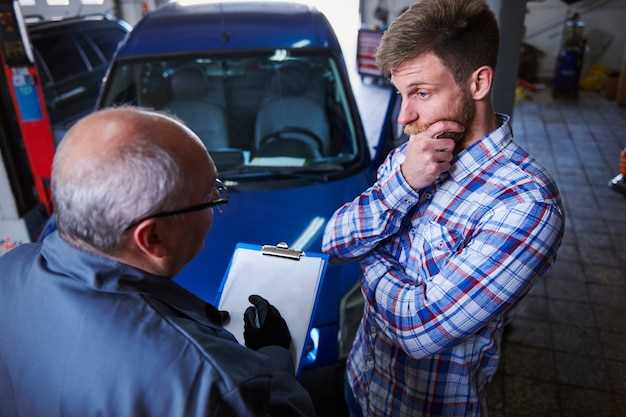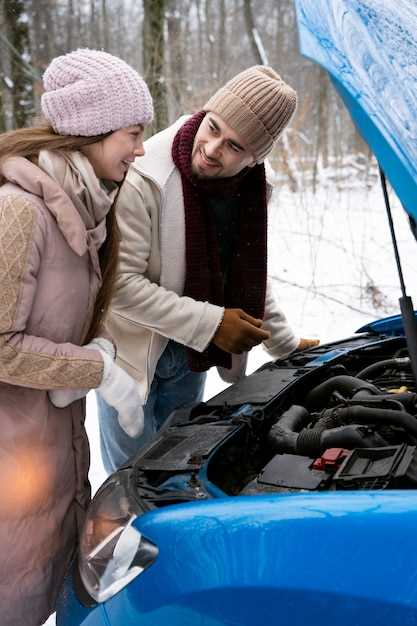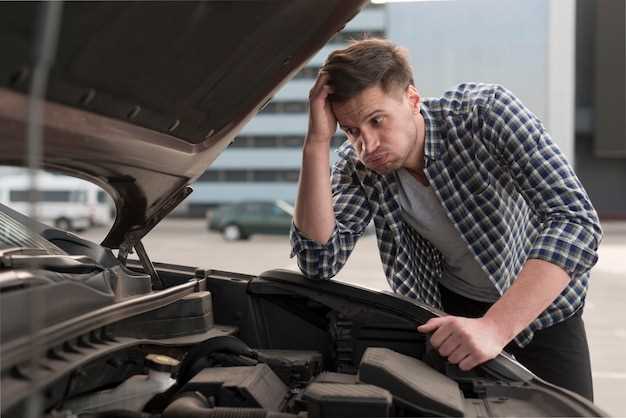
What car problems are cheapest to fix early
- Dominique Kaye
- 0
- Posted on

Car ownership comes with its share of responsibilities, and one of the most critical is staying on top of repairs. Early detection and repair of common car issues can lead to significant cost savings in the long run. Ignoring minor problems often escalates into more severe, expensive repairs that could have been avoided.
When addressing car maintenance, a proactive approach is essential. By identifying repair needs early, owners can prevent minor issues from becoming major headaches. This article outlines the cheapest car problems that should be fixed as soon as they are noticed, ensuring drivers save both time and money while keeping their vehicles running smoothly.
Understanding the typical signs of wear and tear on a vehicle can empower owners to take action before costs spiral out of control. From tire maintenance to brake issues, recognizing these early symptoms can lead to substantial saving opportunities. Prioritizing these repairs not only enhances safety but also preserves the overall value of the vehicle.
Identifying Common Issues That Increase Repair Costs

Identifying and addressing common car issues early can significantly impact overall repair costs, providing valuable savings for owners. Understanding these problems helps in recognizing symptoms and taking action promptly.
Brake System Problems: One of the most common issues that drivers face is related to the brake system. Worn-out brake pads or damaged rotors, if not replaced early, can lead to more extensive repairs, including a complete brake system replacement. Regularly checking and maintaining brakes can save significant costs in the long run.
Engine Issues: Engine problems can escalate quickly, often requiring expensive repairs if left unaddressed. Early signs such as unusual noises, decreased performance, or warning lights should not be ignored. Routine oil changes and fluid checks can catch issues early, preventing costly repairs that could arise from neglect.
Transmission Troubles: Just like the engine, the transmission is vital for vehicle functionality. Symptoms like slipping gears or delayed shifting should prompt owners to seek immediate assistance. Addressing transmission fluid leaks or low levels early can save substantial costs associated with complete transmission replacements.
Tire Wear: Uneven tire wear can lead to more than just the cost of new tires; it can also affect fuel efficiency and overall vehicle safety. Regular tire rotations and alignments not only extend tire life but also reduce costs related to suspension repairs or increased fuel consumption.
Electrical System Failures: Faulty wiring or battery issues can lead to higher costs if not corrected early. Symptoms such as dimming lights or difficulty starting the vehicle indicate potential problems requiring immediate attention. Timely maintenance of the electrical system can help in avoiding complete component replacement, which can be quite expensive.
Cooling System Malfunctions: A failing cooling system can cause overheating, leading to severe engine damage if not addressed quickly. Regular checks of coolant levels and radiator functionality are crucial for preventing costly repairs associated with engine failure. Early intervention can keep repair costs manageable.
By staying vigilant and addressing these common issues as soon as they arise, car owners can effectively manage costs and ensure their vehicles remain in good condition. Seizing the opportunity to fix problems early is a smart approach that leads to long-term savings and reliability.
Cost-Effective Solutions for Minor Car Repairs

Addressing minor car issues early can significantly reduce overall expenses for owners. By identifying and repairing these problems promptly, drivers not only avoid further complications but also engage in saving strategies that extend the lifespan of their vehicles.
One of the most common issues is low tire pressure. Regularly checking and inflating tires can prevent uneven wear and enhance fuel efficiency. Investing in a quality tire pressure gauge pays off by minimizing repair costs related to tire replacements.
Another area to consider is brake maintenance. Brake pads, when replaced early, are much cheaper than waiting until they wear down completely. A simple inspection and timely repair can ensure a safer driving experience while avoiding expensive rotors or calipers replacements.
Additionally, monitoring fluid levels–including oil, coolant, and transmission fluid–helps prevent overheating and extensive engine damage. Simple oil changes and fluid top-ups can safeguard the vehicle’s performance and reduce the likelihood of significant repairs later on.
Routine battery checks can also yield substantial savings. If a battery is showing signs of weakness, replacing it sooner rather than later avoids inconvenience and prevents the risk of being stranded due to failure.
Moreover, paying attention to windshield wiper performance can save on costly windshield repairs. Addressing wiper blade replacements at the first signs of wear ensures clear visibility and avoids damage caused by scraping on the glass.
In summary, focusing on early intervention for these minor repairs fosters a proactive mindset that leads to significant cost savings in the long run. By recognizing and addressing issues promptly, car owners can maintain their vehicles effectively and avoid more serious financial burdens associated with neglect.
Preventive Maintenance Tips to Avoid Major Expenses
Regular preventive maintenance is essential for car owners seeking to save on future repair costs. Addressing minor issues early can prevent them from developing into significant problems that require expensive fixes. Here are some essential tips to help you maintain your vehicle effectively:
- Regular Fluid Checks
Check and change your oil, coolant, brake fluid, and transmission fluid regularly. Keeping fluids at optimal levels ensures that your engine and other vital components operate smoothly.
- Tire Maintenance
Regularly check tire pressure and tread depth. Properly inflated tires enhance fuel efficiency and handling, while adequate tread reduces the risk of blowouts and improves safety.
- Brake Inspection
Inspect brakes regularly for wear and tear. Early detection of issues, such as worn pads or warped rotors, can save you from costly brake repairs.
- Battery Care
Keep your battery terminals clean and check for corrosion. A well-maintained battery can prevent unexpected breakdowns and the costs associated with jump-starts or replacements.
- Replace Air Filters
Changing your air filters can improve engine performance and fuel efficiency. Clean filters ensure optimal airflow into the engine, preventing potential damage from dirt and debris.
- Regular Inspections
Schedule periodic professional inspections to catch potential problems early. Mechanics can identify issues that may not be easily noticeable, saving you from larger expenses down the road.
- Timing Belt Replacement
Replacing the timing belt according to your manufacturer’s recommendations is crucial. A broken timing belt can lead to catastrophic engine damage, requiring costly repairs
By implementing these preventive maintenance strategies, car owners can effectively manage costs and enjoy a reliable vehicle for years to come. Early action can significantly decrease the likelihood of major expenses down the line.
